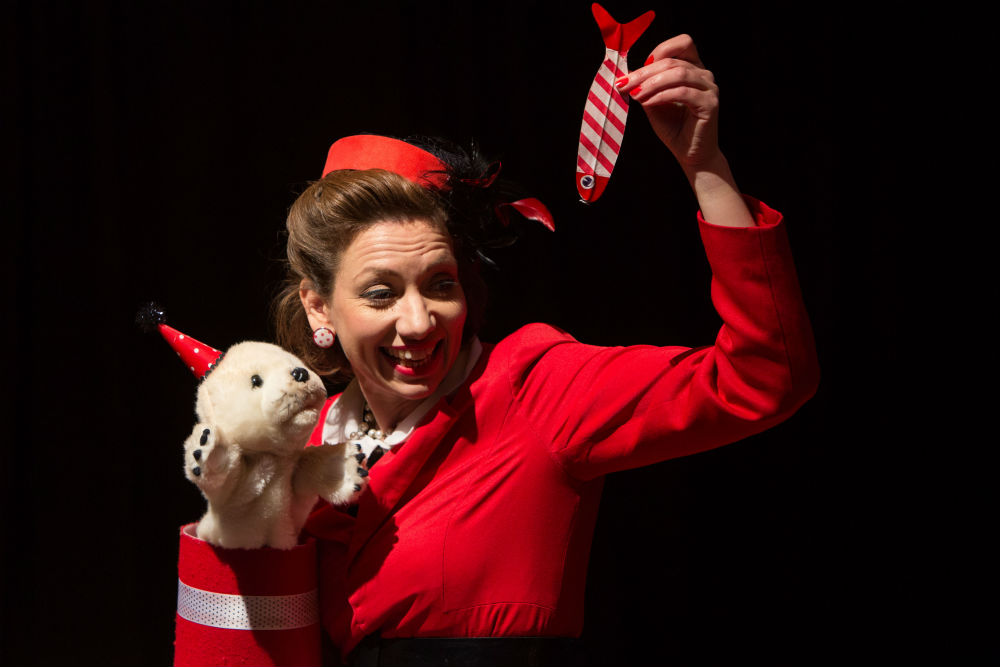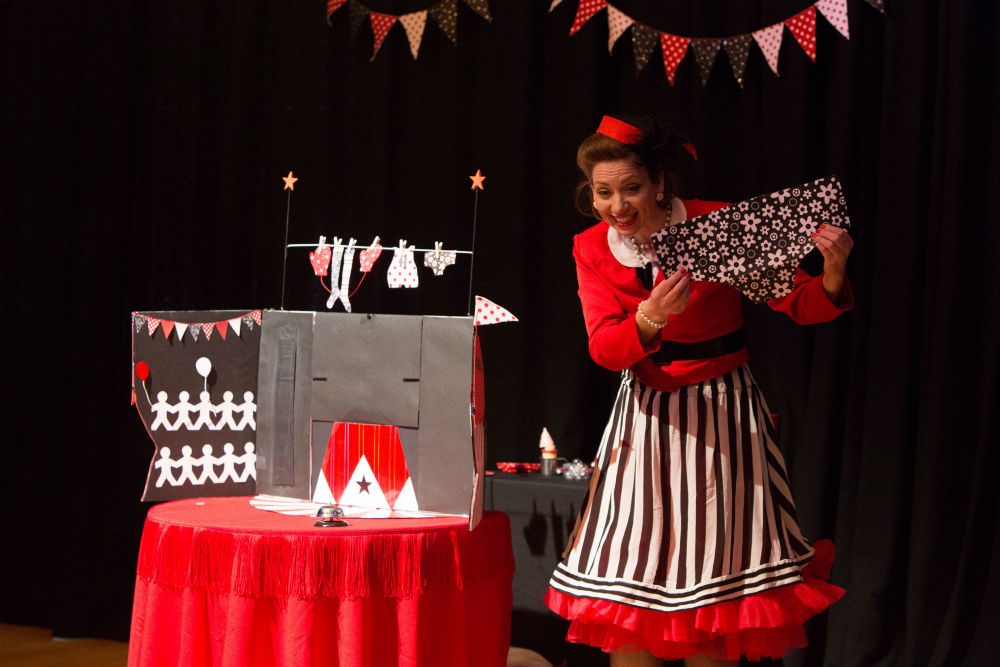A HOME-MADE bigtop, popcorn and the power of pop-up performance has theatremaker Francisca Morton hypnotising little audiences.

Francisca Morton believes being a sensible grown-up is over-rated. The psychotherapist, actor and director loves to play.
It’s an art she thinks we lose a lot too early in life and she is harnessing its healing properties in the magical little tour de force that is Celeste’s Circus at this year’s Festival Fringe
The mother-of-two, who is a registered hospital play specialist and has worked with vulnerable babies and children, is under no illusions about its remarkable power to transform.
Celeste’s Circus is a touching, technically-challenging, one-woman epic adventure of the imagination, originally made for babies and influenced by Morton’s engagement with them in hospitals.
Play helped small babies – at the Royal Edinburgh Hospital for Sick Children where Morton worked – recover after premature births or relax before surgery.
She also discovered how beautifully children learn from, trust and respond to simple props like puppets, even after extreme trauma.
The United Nations Convention on the Rights of the Child lists play as a universal right of every child, explains the performer from Faux Theatre over a coffee at the Scottish Storytelling Centre in Edinburgh.

“Play is a universal language for children,” she says. “I used to work with tiny neonates awaiting surgery at the Royal Edinburgh Hospital for Sick Children. “
The actor would watch them “come alive and light-up” when they were supported by “human warmth, interaction and play.”
She adds: “They were often in a protective medical incubator, sometimes left alone for lengths of time and not interacted with or touched a huge amount, apart from during medical procedures.
“Their level of responsive engagement seemed to me in direct relation to the amount of input offered.”
Celeste is a charismatic French ringmaster with a delightful ‘Allo, Allo’ accent, red-pill box hat and glamorous candy-striped suit.
She pulls a big top show from a red suitcase before showering us with circus stardust on a gleeful ride that includes a double-decker bus, performing animals, silly voices, kazoos and kitsch, precise comic timing and assured behind-the scenes engineering.
The big-top was crafted by Morton herself from paper, cardboard, sticky tape, fabric and fringing, and animated with a homemade menagerie of animals, including, Helga the Hippo, an elephant with big pants, a shy seal called Celia and a couple of performing dogs with potty training issues.
The show highlights Morton’s multi-tasking abilities and her remarkable storytelling skills have already drawn in critical praise.
Her audience of largely under-fives are usually captivated; spellbound past the simplicity of a story-telling journey even the adults don’t want to wake-up from.
So what are the technical difficulties of putting on a show like this?
Morton smiles: “To be honest I don’t know how I made this set! If I had to make it again I don’t think I could! One of my favourite quotes said ‘a feat of paper engineering.’ I somehow figured out what I needed the paper creatures to do and what set I needed to do it in and made it all foldable to pop out of the circus ‘ book’.
“It was originally called ‘Pop-up Circus’ like a giant kids pop-up book.”

As if this challange weren’t enough, performing solo requires a certain self-reliance and steel. There are both advantages and disadvantages to this, says Morton. “I need only to rely on myself and this show can be toured solo, in my car.
“It also allows me to be a creative megalomaniac. I’m the designer, maker, director , performer and marketer. “
The disadvantages are that it can be stressful to be responsible for everything and a lonely path to travel.
But Morton’s perseverance has paid off. She has been awarded funding from Creative Scotland for a new piece of visual theatre to be showcased at next year’s Manipulate festival. No mean feat in these days of swathing arts cuts.
Perhaps the organisation were drawn to the attention to detail in her shows. For example, the black, white and red theme of Celeste’s Circus may have seemed inspired by generic circus colours. But there was more to it.
“Apparently babies respond best to the three colours black, white and red,” she says. “The set and costume for Celeste’s Circus is all built on these colours.
“It is always a delight to witness even the youngest of audience members holding their attention for the 35 minutes. I don’t wish to jinx things but it is rare for babies to cry or toddlers to kick off during the show, or if they do they soon settle. It seems to hold their attention and that is the thing I am most proud of.”
Working with children takes a special qualities; someone not too easily distracted, professional but also playful and engaging. Morton displays all of these as she ushers a little army of critics into the auditorium and has them settle. But beneath her alter-ego, she is carefully anchoring things with a certain precision.
Her love of the job helps: “It is an absolute joy to be brought tiny little people to see my show. And to see their wrapt, little dribbly faces gawping out at me from the semi dark.
“For most of these wee ones it is their first time at the theatre ever and that feels like an absolute honour.”
